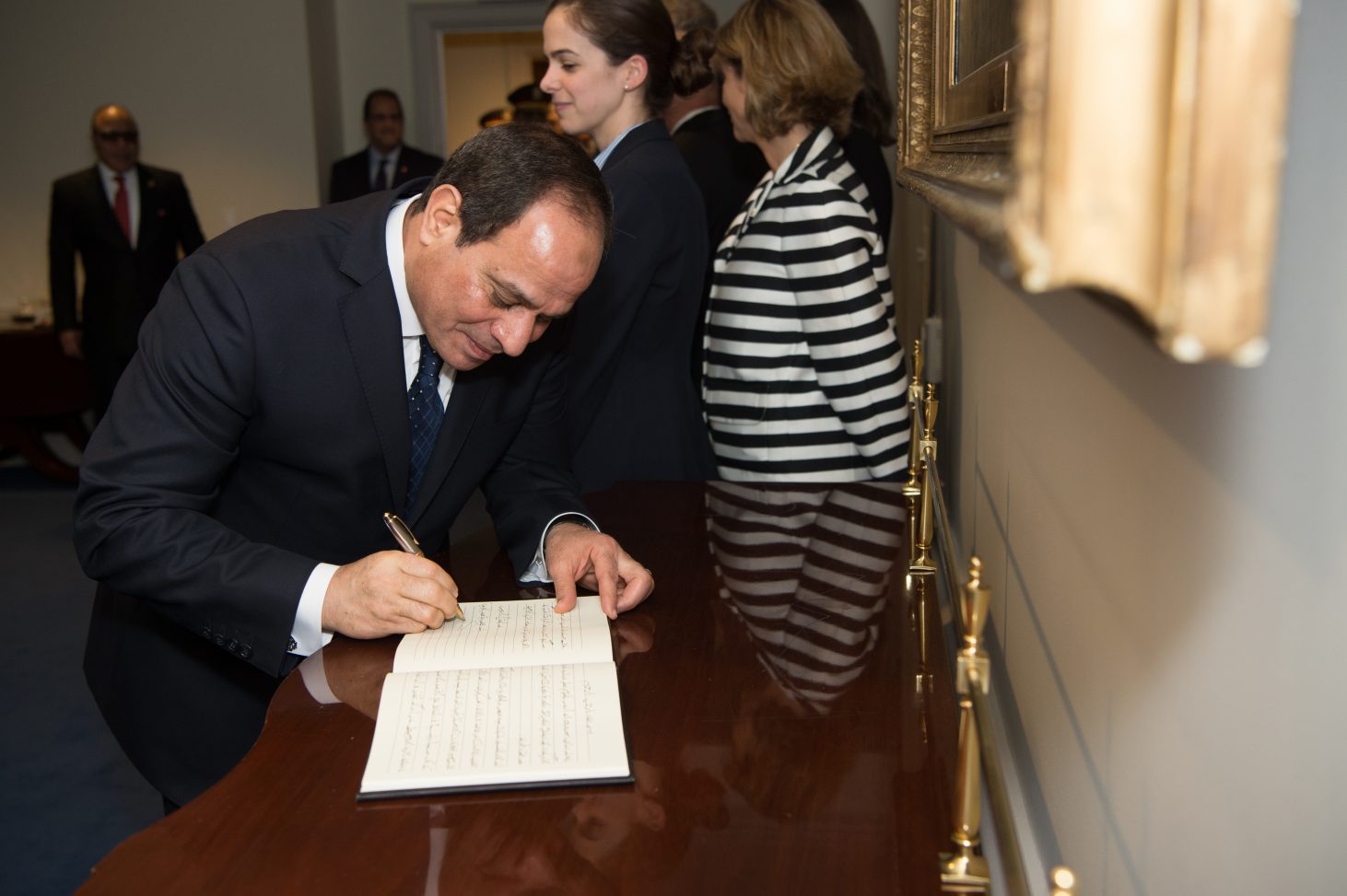
With permission, read full study on JISS.
https://jiss.org.il/en/lerman-keystone-sisi-egyptian-stability-future-eastern-mediterranean/
Executive Summary
Egypt’s presidential elections, held in March 2018, produced a predictable outcome. Incumbent president Abdel Fattah Al-Sisi, running as an independent, won 21,835,387 votes. The only other candidate left in the race, Musa Mustafa Musa, garnered 656,534.
Winning with 97% of the votes cast demonstrates how far the reality of Egyptian politics has fallen from the fervent hopes of 2011. Still, the revolutionary events that swept across Egypt beginning in 2011 have been of decisive importance. Egypt’s population will soon reach one hundred million people.
The country maintains a vital geo-political position. The internal upheavals and their potential ramifications, including the rise of Islamist totalitarian rule, could be devastating for regional and international stability.
Egypt’s challenge is essentially internal. Indeed, the country faces only one significant external threat, the ongoing construction of the Renaissance Dam in Ethiopia. However, this potential flash point can be mitigated by implementing more progressive water policies. Elsewhere, there’s a festering border dispute with Sudan, while the lawless lands of Libya present other problems. But none of these issues constitute a strategic threat to Egypt. Meanwhile, Israel continues to be a strategic ally, despite the hostile view of the Jewish state that’s held by many Egyptians.
The future of Egypt hinges on the current regime’s ability to hold the country together economically, socially, ideologically and politically. Specifically, Sisi needs to win the internal war on terror, implement his national projects, sustain growth, strengthen ties with Eastern Mediterranean countries, and overcome deep reservations about him in the United States and across Europe.
All this depends on whether Sisi can keep his government unified, despite the recent emergence of fissures within the ruling establishment. One key way he’ll be able to keep his own house in order is by continuing his reform efforts and his quest to transform Islamic religious discourse (tas’hih al-khitab al-dini).
Israel and other regional players in the Eastern Mediterranean would be well advised to view Egypt’s continued stability as their top foreign policy priority. In return, Egypt would benefit from the discreet advice and assistance that allies can offer on such issues as water management, economic liberalization, securing the Sinai, and particularly reigning in Cairo’s security services, to make it easier for Israel to help Egypt on Capitol Hill.
Policy Recommendations: Israel’s policies and ongoing dialogue with allies in the region, the United States, and across Europe, should thus be focused on enhancing Egyptian stability. To do so, Israel needs to pursue several courses of action. To begin with, the government in Jerusalem must maintain close relations with the Egyptian leadership. This alliance can be strengthened by discreetly enhancing cooperation in the military and intelligence spheres.
Regarding trade, Israel can take a renewed interest in specific economic incentives such as the expansion of the QIZ system, and other trade measures. In addition, Israeli expertise in the field of water technology can, preferably indirectly, help Egypt cope with the consequences of the dam in Ethiopia.
At the same time, Israel should encourage the U.S. Congress to remain fully committed to aiding Egypt and helping it win its internal war on terror. This financial support should include gentle persuasion on the part of senators and congressmen, to encourage Egypt’s leadership to reform its economy.
Also, Israeli leaders should engage the Egyptian government in a conversation on ways to transform the public discourse, away from the violently anti-Israel rhetoric that continues to pervade across Egyptian society. Meanwhile, common ground between the two countries can be found on the Palestinian issue, specifically with regards to the population in Gaza. Such a display of cooperation could be used by Sisi as proof that he can deliver practical results by working with Israel, enhancing his international credibility.
It would be useful to broaden the scope of consultation and coordination with other Mediterranean partners, expanding the present model of trilateral meetings (Greece-Cyprus-Israel and Greece-Cyprus-Egypt); and when possible, given political turmoil there, bringing Italy in as a strategic anchor. Specifically, it is important to lend political support, in Washington and in Europe, to the Egyptian strategy in Libya.
Having said all this Israeli political, intelligence, and military leaders must also be ready to respond to the unlikely, but dangerous, possibility that Sisi’s regime will disintegrate; and the result of his ouster could be that the 1979 peace treaty between Israel and Egypt is torn up. The inclusion of such a risk (as distinct from an actual threat) as part of the Israel Defense Force’s (IDF) overall strategic doctrine will help sustain Israel’s qualitative military edge, another vital pillar of regional stability.
